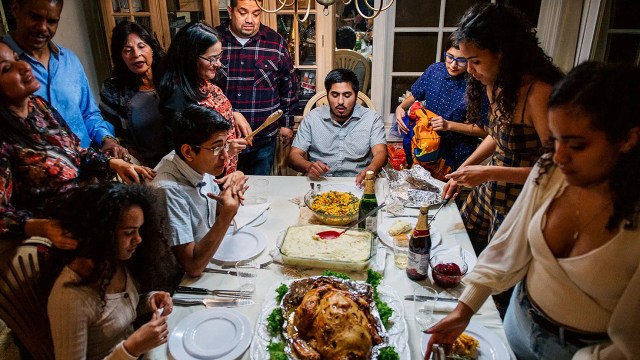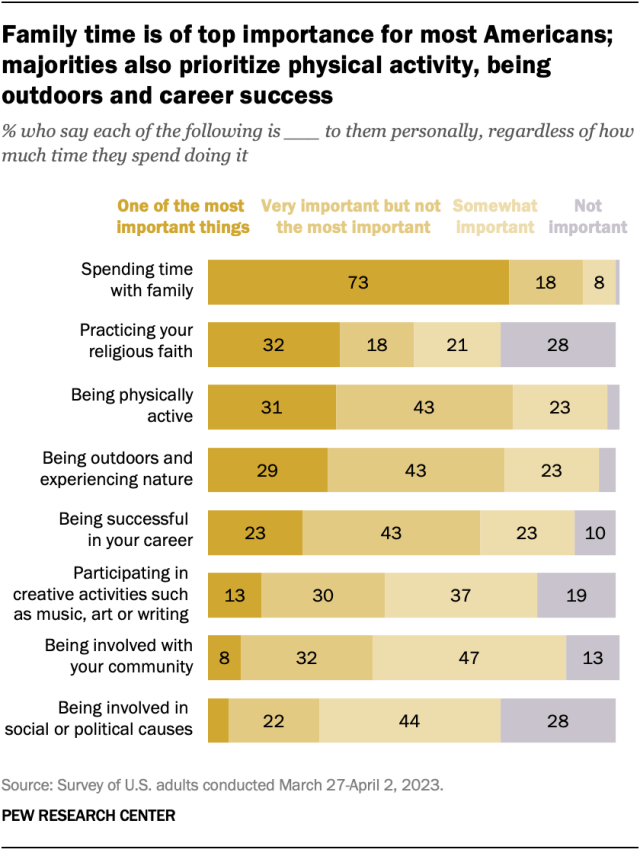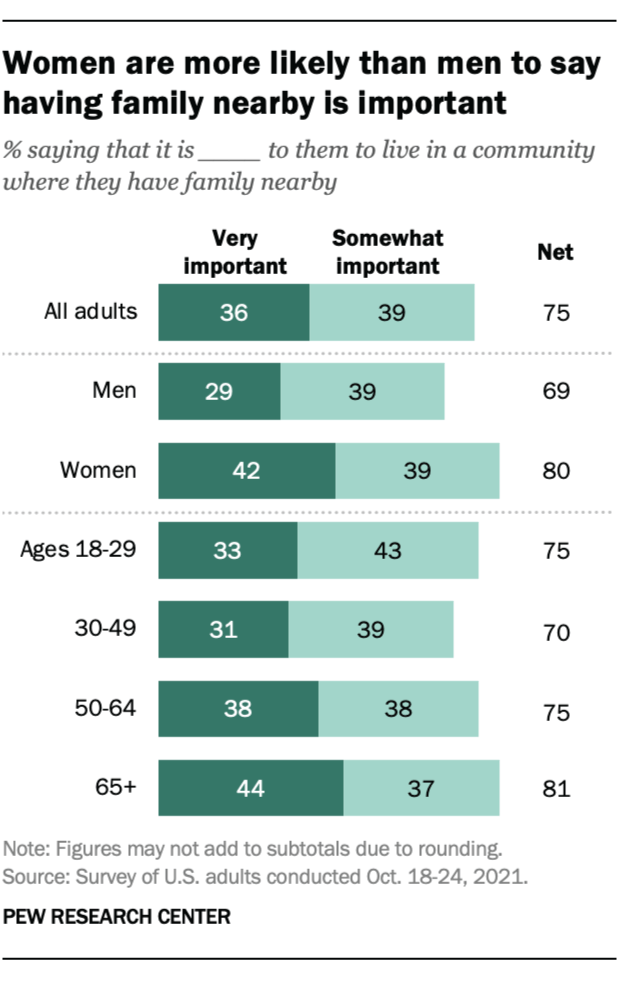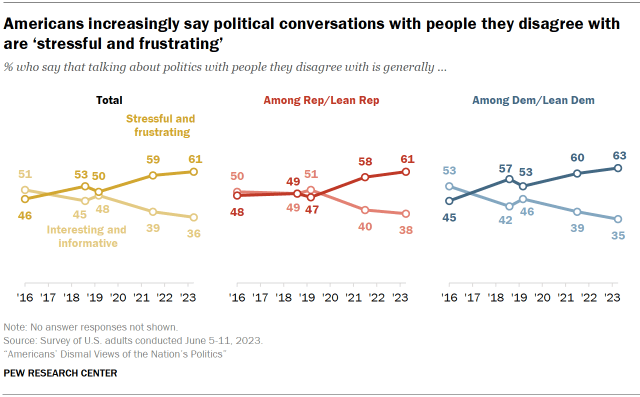
Thanksgiving falls on Nov. 23 in the United States this year. It’s a holiday that many will mark by gathering with family and friends – time that can be joyful, stressful or some combination of the two.
Here are six facts about Americans and family togetherness, based on data from Pew Research Center surveys.
How we did this
Pew Research Center compiled this roundup of facts about Americans’ families and loved ones ahead of Thanksgiving. It is based on previously published findings from Center surveys.
More information about these surveys and their methodologies, including the sample sizes and field dates, can be found at the links in the text.
Spending time with family far outranks other personal priorities for most Americans, according to a Center survey from this spring. A large majority of U.S. adults (73%) say family time is one of the most important aspects of their life – and none of the other priorities we asked about comes close.

Overall, nine-in-ten Americans say spending time with family is either very important or one of the most important things to them personally, regardless of how much time they actually devote to it.
What’s more, spending time with family is the top priority for Americans regardless of political affiliation. About nine-in-ten Republicans and Democrats (including those who lean to each party) say family time is either very important or one of the most important aspects of their life.
Most U.S. adults value living close to family, a fall 2021 Center survey found. Three-quarters of Americans say it’s important to live in a community where they have family nearby, including 39% who say this is somewhat important and 36% who say it is very important.
Americans’ views on living near family vary somewhat by:
- Gender. Women are more likely than men to say having family nearby is very important to them (42% vs. 29%).
- Age. Adults 65 and older are the most likely to say living near family is very important. More than four-in-ten (44%) say this, compared with 33% of those 18 to 29.

Many Americans may not need to travel far if they are visiting relatives this Thanksgiving. More than half (55%) say they live within an hour’s drive of at least some of their extended family members, according to the 2021 survey. That includes 28% who say they live within an hour of all or most of their extended family members.

Another 24% say they live within an hour’s drive of only a few extended family members, and 20% say they don’t live near any extended family.
How close Americans live to their family varies by several demographic factors, including:
- Education and income. Adults with a postgraduate degree are the least likely to live near extended family. About four-in-ten (42%) say they live within an hour’s drive of at least some of their relatives, compared with 63% of adults with a high school diploma or less education. The same pattern holds when comparing adults in upper-income households with those in middle- or lower-income households.
- Race and ethnicity. Asian Americans are less likely than White, Black and Hispanic adults to live near all or most of their extended family. About two-in-ten Asian adults (18%) say they live near all or most of their relatives, compared with about three-in-ten in the other groups. This could be partly due to the high share of Asian American adults who were born in another country and whose family may still live abroad.
- Community type. Adults in rural communities are more likely than those in urban or suburban communities to live near at least some extended family. Roughly six-in-ten (62%) say they do, compared with 54% of adults in suburban areas and 50% in urban areas.
Many Americans’ idea of family also includes their pets, a Center survey from April shows. Of the 62% of U.S. adults who are pet owners, nearly all (97%) say their pets are part of their family. This includes 51% who say their pets are as much a part of their family as a human family member.
The majority of Americans say close friendships are highly important for people to have a fulfilling life, according to the April survey.
Much in the spirit of “Friendsgiving,” about six-in-ten U.S. adults (61%) say that, in general, having close friends is very or extremely important for people to live a fulfilling life. This is far higher than the shares who say the same about having children (26%), having a lot of money (24%) or being married (23%).
A narrow majority of adults (53%) have between one and four close friends, a separate Center survey conducted in July found. Another 38% say they have five or more.
Thinking and talking about politics dredges up negative emotions for most Americans. Around six-in-ten U.S. adults (61%) say having political conversations with people they disagree with is generally “stressful and frustrating,” according to a Center survey from June. Fewer (36%) say they find these types of conversations “interesting and informative.”

This is another point on which Republicans and Democrats hold similar views: About six-in-ten people in each party say they find it stressful and frustrating to have political conversations with people they disagree with. These shares have grown somewhat in the last few years, and a similar trend appears among Americans overall.
More broadly, majorities of Americans say even thinking about politics these days makes them always or often feel exhausted (65%) and angry (55%) – making it an understandably fraught topic for the Thanksgiving table.




